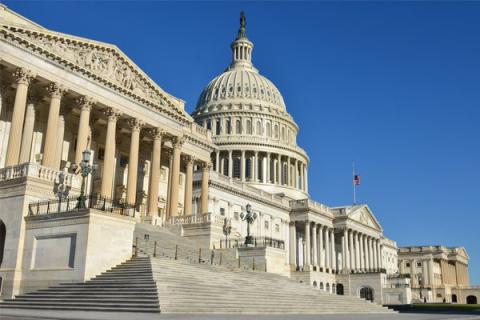The Pew Research Center recently conducted a national public opinion poll asking American adults what they thought about the current budget crisis gripping Congress and the Obama administration.
The crisis began September 20 when the Republican-led House of Representatives passed a budget proposal that would defund the Affordable Care Act (ACA), popularly known as Obamacare. The Democrat-led Senate and President Obama are adamant that they will not allow any budget defunding the ACA to pass. To avoid a government shutdown, Congress has until the end of September to pass a budget.
The Pew poll had three significant findings. First, there are about as many Americans ready to blame congressional Republicans (39%) as there are ready to blame the Obama administration (36%) if no agreement is reached. Seventeen percent of respondents said they would blame both sides. The results are identical to those of an April 2011 poll conducted during the last budget crisis.
Second, the majority of Americans (57%) want lawmakers to compromise even if it leads to a budget that they, their constituents, don’t like. Relatedly, the majority of Americans want to avoid a government shutdown; sixty-one percent of Americans believe a shutdown would have a major effect on the economy and an incredible seventy-five percent of Americans believe its effect would be mostly negative.
As the poll makes clear, neither party would come away undamaged in the event of a shutdown, and the majority of Americans want to see this crisis go away. Yet, Congress is running dangerously close to forcing a shutdown over a stalemate in the battle to defund the 2010 healthcare law. The poll’s third significant finding may help explain the phenomenon.
While Congress as a whole may be acting in ways inconsistent with the wishes of the general public, lawmakers are acting consistently with the wishes of their partisan base.
According to the poll, 76 percent of self-identified Democrats are in favor of compromising even if the budget is unsatisfactory. Yet, 73 percent of those same respondents are opposed to the House Republican proposal to defund the ACA. Since the fight over the ACA is the only thing holding up the budget’s passage, Democrats’ latter response negates the former. In other words, for Democrats, compromise is not an option when it comes to funding the ACA.
Meanwhile, self-identified Republicans are deeply split over the issue of compromising. Forty-three percent want a compromise, while 49 percent say lawmakers should stand by their principles, even if it leads to a government shutdown. The 49 percent figure is largely driven by self-identified tea party respondents, 71 percent of whom said their lawmakers should stay resolute even if it leads to a government shutdown, which runs directly against the 57 percent of Americans who want to see compromise.
Additionally, not only are self-identified tea partiers contrarian over compromising, but they also don’t believe a government shutdown would have a major effect on the economy. Sixty percent of tea party Republicans believe a government shutdown would have a minor effect or no effect as opposed to 60 percent of non-tea party Republicans (and 60% of the general American public) who believe that it would have a major effect.
The poll’s three findings show that Congress is acting in accordance with the views of partisan voters at the expense of the national will and despite the threat of national opprobrium. The tea party’s stubbornly contrarian views, combined with Democratic voters’ staunch opposition to a budget defunding the ACA, drives at the very heart of the stalemate in Congress. However, as the poll shows, while lawmakers’ behavior may play well with their partisan constituents, both parties would be hurt on a national level if no deal is brokered.

